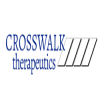Dive Brief:
- Roche AG is acquiring Ignyta Inc. for $27 per share, resulting in a $1.7 billion deal that builds out the Swiss pharma's lung cancer pipeline with a Phase 2 asset.
- While Ignyta has a few drugs in preclinical and early-stage testing, the big prize for Roche is entrectinib, a small molecule inhibitor of neurotropic tropomyosin receptor kinases (NTRKs) and ROS1 proteins. In October, the drug scored positive interim data in a mid-stage trial testing it as a treatment for locally advanced or metastatic solid tumors that have NTRK1/2/3, ROS1, or anaplastic lymphoma kinase (ALK) gene rearrangements.
- The acquisition is all-cash, and expected to close in the first half of 2018 — provided Ignyta's shareholders sign off on it. Roche reported €6.9 billion ($7.2 billion) in cash and cash equivalents and marketable securities as of June 30.
Dive Insight:
Roche's problems are well-documented at this point. The big pharma is facing biosimilar threats to its top three products, Avastin (bevacizumab), Herceptin (trastuzumab) and Rituxan (rituximab), and is banking on new portfolio additions to offset potential revenue declines.
Cancer drugs appear to be of particular importance, which is understandable given that oncology treatments accounted for more than 60% of Roche's €20.5 billion ($21.4 billion) in total pharmaceutical sales during the first half of 2017.
Recently approved PD-L1 inhibitor Tecentriq (atezolizumab) and tyrosine kinase inhibitor Alecensa (alectinib) are steadily lifting up those sales, and Roche contends that entrectinib could further ballast its business should the drug ultimately gain muster with the FDA.

"Cancer is a highly complex disease and many patients suffer from mutations which are difficult to detect and treat," Roche CEO Daniel O'Day said in a Friday statement. "The agreement with Ignyta builds on Roche’s strategy of fitting treatments to patients and will allow Roche to broaden and strengthen its oncology portfolio globally."
The Ignyta acquisition comes just two months after the biotech revealed positive interim results from STARTRK-2. In that open-label study, investigators tested entrectinib across a variety of solid tumor types, including breast, colorectal and pancreatic. The key enrollment criteria was that patients' tumors must have an NTRK1/2/3, ROS1, or ALK gene rearrangement.
Interestingly, patients with non-small cell lung cancer (NSCLC) and gene rearrangements in their ROS1 enzymes showed objective response rates between 69% and 78%.
The findings suggest entrectinib has a best-in-class profile as a first-line targeted therapy for ROS1-positive NSCLC, according to Ignyta. They also likely caught the eye of Roche, which has been pursuing mutation-specific indications in lung cancer for Alecensa and Tecentriq.
"The deal appears based on success in ROS1 NSCLC and TRK (tumor agnostic), and given that STARTRK-2 is open-label, we anticipate Roche has had access to at least some TRK data," Jefferies analyst Maury Raycroft wrote in a Dec. 22 investor note.
"Additionally, Roche has several targeted therapies in their portfolio including Alecensa (alectinib), which has distinct CNS activity that has demonstrated prolongation of PFS — this is a characteristic we also viewed as important for entrectinib's profile/activity, and alectinib's success may have attracted Roche to [Ignyta]," Raycroft wrote.
Roche is testing Tecentriq in combination with either Tarceva (erlotinib) or Alecensa in EGFR mutation-positive or ALK-positive NSCLC patients. Last month, the FDA expanded Alecensa's label to include first-line treatment of ALK-positive NSCLC patients.
On a larger scale, Roche's latest deal reaffirms the therapeutic and financial potential of targeted cancer treatments, according to Raycroft.
"Roche has now added validation to [Ignyta’s] approach and lead drug," he wrote. "Further, the deal could be a [positive] read through for the space more broadly demonstrating big pharma still has an appetite for targeted oncology despite recent IO focus."














